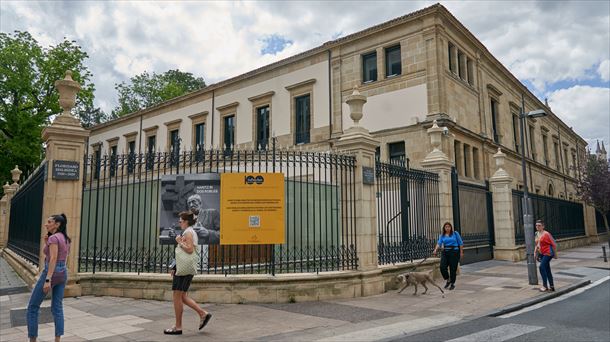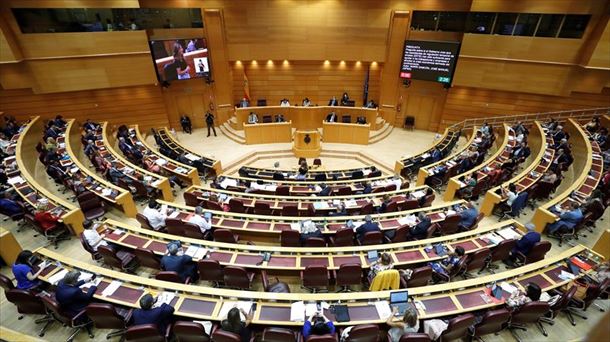The amendment of Foral Law 10/2010 on the right to housing in Navarre will allow the declaration of problem areas. The proposal was implemented with the support of PSN, EH Bildu, Geroa Bai and Contigo-Zurekin – while the rest of the parties, UPN, PPN and Vox, voted against.
Navarre’s parliament on Thursday approved the amendment to the provincial law on the right to housing, which will allow the provincial government to limit house prices in areas considered to have a stressed housing market.
The scope -approved with the support by PSN, EH Bildu, Geroa Bai and Contigo-Zurekin and the rejection of UPN, PP and Voxsearch relieve pressure on the real estate market in areas that can be accessed affordable housingespecially in the regime of rent, It has become almost impossible.
The proposal introduces the concept of “Tense residential market area”, allowing the government of Navarre to identify and declare certain areas as suchbased on an extensive analysis of the real estate market and the economic capacity of residents.
The areas may explain stressed if found the costs of housing (mortgage or rent) is more than 30% of the average income or as the prices of the house they have risen at least three points above Navarre’s CPI over the past five years.
The declaration must go through a process of data collection, public analysis and argumentation, and detailed studies on demographics, prices, housing types and other factors will be presented to inform the decision.
Once approved, the Navarre government will adopt a specific plan to resolve the imbalances, which may include intervention measures on the market, and promote cooperation with the affected municipalities.
The declaration has an initial term of three years, with the possibility of annual renewal if the situation of imbalance continues.
Municipalities that have not been declared a stress area can also have a similar analysis started if they meet certain requirements.
Ratings of political parties
The parliamentarian of With you-Zurekin Daniel López has defended that the change in law is “the answer to a political and social uproar” and has emphasized that “the market does not regulate itself” in addition to the fact that “no measure is a panacea”, so “it is necessary to take all possible measures and instruments”.
He socialist Kevin Lucero has lamented that “access to housing has become an increasingly difficult task for many citizens, especially young people” and believes that “the situation requires immediate action”. “We cannot allow you a policy of sitting back,” he said.
By EH BilduMikel Zabaleta has criticized the fact that access to housing is determined by the market, since “as long as the market does not intervene, it will be the one who decides for all of us”, and has defended the role of local entities as part of the solution.
For her part, María Solana (Geroa Bai) has indicated that this change “seeks to correct a critical situation created by the UPN policy.” The problem “is so deep, the soil they have brought us to is so deep, that it will take years, decades to reverse it,” claimed Juan Luis Sánchez de Muniáin of UPN presented a law that is based on a “false and hasty manner” was drawn up by the Ministry of Housing to “bypass all the guarantees required by a bill” and have criticized that “they have chosen to do the easiest and most inefficient thing”.
For him P.P., Maribel García Malo has pointed out that “the lack of affordable housing has become a serious problem; it wasn’t, it has become” as a result of “ten years of wrong policies by the self-proclaimed progressive parties”, which “today have taken a step further through the back door.”
Finally, Emilio Jiménez (Vox) has emphasized that “access to housing has become a path full of obstacles, such as higher taxes, regulations, collusion with illegal squatters, legal uncertainty, criminalization of owners and speculation by governments.”
Source: EITB
I am Ida Scott, a journalist and content author with a passion for uncovering the truth. I have been writing professionally for Today Times Live since 2020 and specialize in political news. My career began when I was just 17; I had already developed a knack for research and an eye for detail which made me stand out from my peers.



